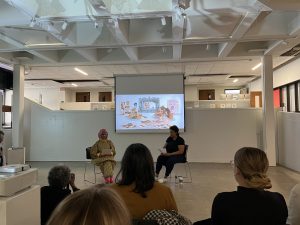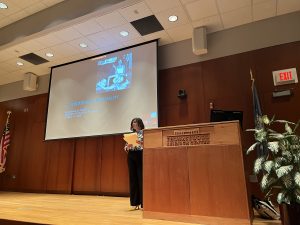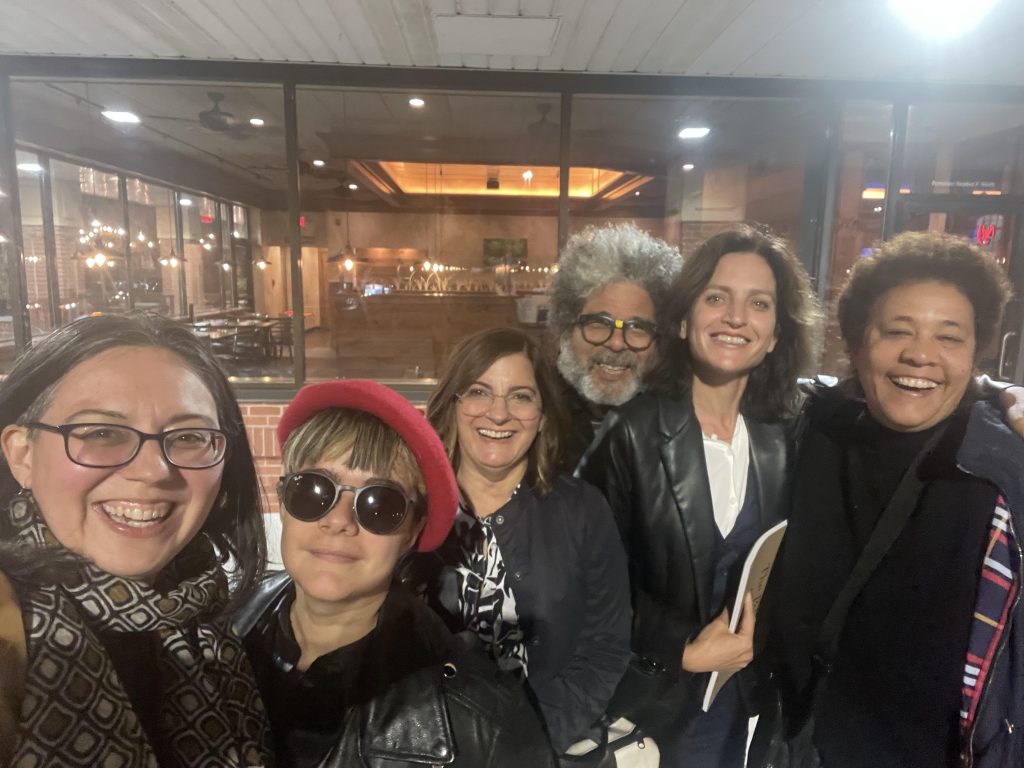Contributed by Jacqueline Loss
Spanish PhD student, Inileidys Hernández, sent a letter to me and other faculty expressing the social and psychological weight that the July 2021 unprecedented protests in Cuba had on her, her family, and the many members of our UConn community whose lives were linked to the crises on the island. Her letter hit hard, and it inspired us.
The fall 2022 event series, “Faces, Masks, Bodies: Contemporary Cuban Writing, Art, and Performance,” emerged from that inspiration. Professor Katerina Gonzalez Seligmann, Inileidys, and I garnered support for the series from so many units across campus: Humanities Institute; El Instituto; ELIN Fire Fund; Luis B. Eyzaguirre Fund; Spanish; Literatures, Cultures & Languages; Journalism; Women’s, Gender, and Sexuality Studies; Africana Studies; Art and Art History; Arts and Human Rights Research Program; Human Rights; John N. Plank Lecture Series; and the Creative Writing Program.
Those who attended September 20’s session with visual artists Paola Martínez Fiterre, Gigi de la Torre, and critic/curator Mailyn Machado will never forget the intimate expressions that are overlayed upon the images of resistance to the obligations of womanhood and Cubanness.
Carla Gloria Colomé Santiago’s October 4th discussion, “La mujer y la crónica en el siglo XXI,” continued the discussion by delving into the personal stories she covers as a journalist and the mechanisms she utilizes to cover the human impact of sociopolitical circumstances in Cuba and the diaspora.

On October 11, performance artist Yali Romagoza came on “stage” just outside of UConn’s Contemporary Art Galleries (with the incredible support of Professor Macushla Robinson and her students), dressed as a Latinx rendition of a cuquita, the paper-cut-out doll from her Cuban childhood, and our audience faced her challenge to so-called correct female comportment. Gertrudis Rivalta, Black Cuban multimedia artist, had already projected her version of these cut-out dolls on all the walls. It was as if Rivalta created a home for Romagaza within dioramas filled with cuquitas that she created. Whether that home was comfortable was a question the audience was left to ponder.

Guillermina De Ferrari, scholar of Caribbean art and literature and our guest for the Luis B. Eyzaguirre Memorial Lecture, presented her lecture later that day, posing several challenging questions around the politics of care and dissent in contemporary Cuban artistic production and inspiring a rich, multidisciplinary debate.
Osdany Morales, whose short stories and novels resist facile national characterizations, visited us for a fruitful discussion on November 1st.
Fiction writer and journalist Carlos Manuel Álvarez brought us an especially acerbic portrayal of the institution of the press on a global level on November 8th. The generosity of his engagement led to a myriad of questions on the market, truth-telling, and fiction vs. journalism.
The series finale featured UConn’s own Eilyn Lombard Cabrera and Jamila Medina (Brown University), led by Professor Gonzalez Seligmann, who has translated these and other Cuban poets. Audiences were captured by their evocative verses on motherhood, sexuality, immigration, and poetry.
Check out the videos of these events on El Instituto’s YouTube channel, which we have thanks to Kimberly Vasquez, if you missed them live.
